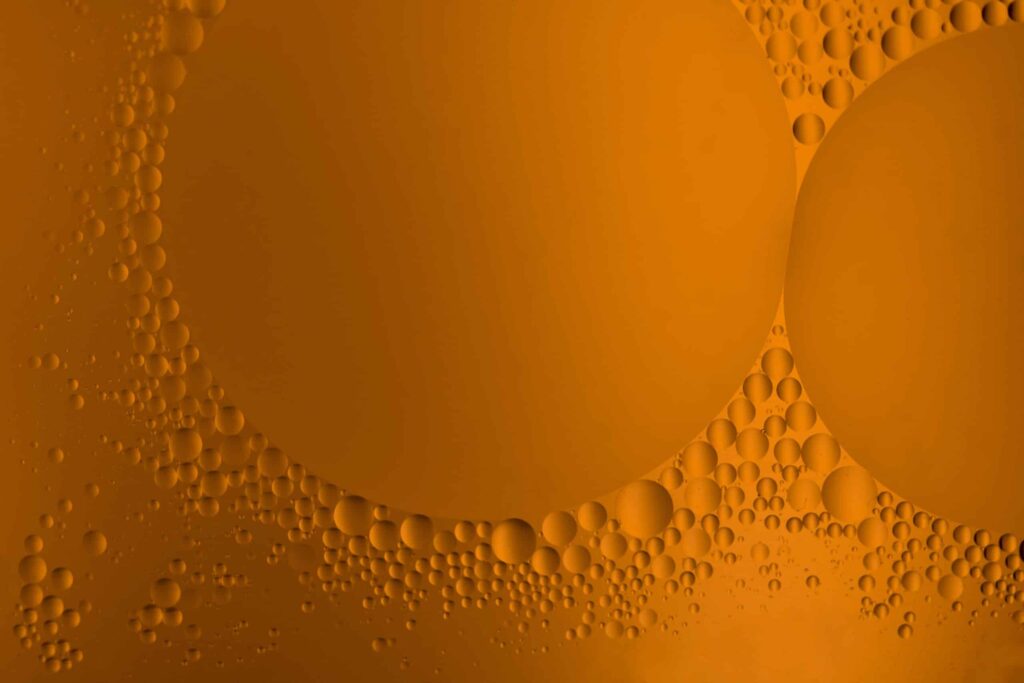It is clear that water and oil don’t mix, but why? This article is for you if you still wonder why they don’t go well together. Keep reading to learn more!
Which is denser?
The density of water and oil can explain why they don’t mix. Oil is less dense than water; hence floats on it. If it were denser, it would sink.

Density is mass per unit volume. So if you take a cubic cm (cc) of oil, its mass is much lesser than a cubic cm of water. The concept of the buoyant force can also clarify this.
Buoyant force
The buoyant force is an upward force exerted on objects submerged in fluids. For example, when oil is immersed in water, the buoyant force equals the water’s weight displaced by the oil. In a nutshell, when oil is in water, the buoyant force (upward force) is much greater than the weight of the oil; thus, it floats.
Assuming you want to dissolve 5 ccs of oil in water. On adding the oil to water, 5 ccs of water are displaced. Now the weight of that much volume of water is much greater than the same volume of oil. Thus, the buoyant force is greater than the weight of the oil. So, oil floats on top of the water.
Why don’t they mix
As it is with some liquids, they dissolve when added to another. However, that is not the case when water and oil are mixed. Why?
This happens because water molecules are polar and are attracted to each other due to hydrogen bonding’s intermolecular force. The bond occurs when the slightly negative oxygen side of the water molecule is attracted to another water molecule’s somewhat positive hydrogen side.
On the other hand, oil molecules are non-polar and hydrophobic or water-fearing hence not attracted to the water molecules as much. The concept of the dipole can explain this better.
Dipole moment
A dipole moment occurs when there is a separation of charge. Think of a dipole as a magnet with two ends. One that is positively charged and the other negatively charged.
Dipole movement is now the product of the difference in the magnitudes of the two charges and the distance between them. Therefore, for water and oil to mix, they should have similar dipole moments.
Dipole with the same strengths dissolves more swiftly with each other than those having different strengths. However, since water and oil differ a lot in their dipole moments, they don’t dissolve in each other.
Which is heavier?
Water is denser (heavier) than oil, so it can’t mix. Hence, 0il floats above the water.
The good
Here is why water and oil not mixing is a good thing:
- Make it easier to clean greasy clothes with detergents. Detergents are attracted to both oil and water. This is because one side of the detergent is hydrophobic (binds with oil), and the other is hydrophilic (binds with water). This led to an emulsion, a stable mixture of two or more liquids that would not have usually mixed. Consequently, the detergent pulls dirt and grime and washes them off with the water.
- Oil also floats on the surface of salt water. This is because salt water is denser than freshwater. You can test this behavior with corn oil, crude oil, cooking oil, etc.
- This property also benefits animals living in the oceans or water bodies. The oil in their feathers and coats protects them from the cold water in winter.
- If ice is immersed in oil, it will float. This happens because it is less dense than oil. However, as it slowly melts into water, it will sink to the bottom.

Jay
Jay is a health and wellness enthusiast with expertise in water quality and nutrition. As a knowledgeable advocate for holistic well-being, Jay successfully manages Type 2 Diabetes through informed lifestyle choices. Committed to sharing reliable and authoritative insights, Jay combines firsthand experience with a passion for enhancing health."
